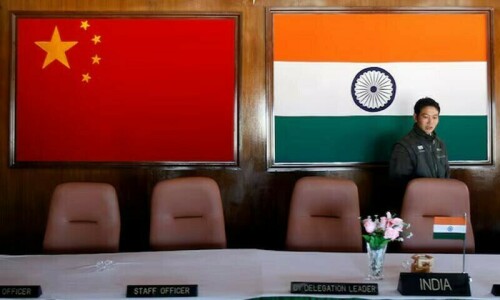BARELY two months into the new fiscal year, the pressure groups have become active. On Wednesday, traders and retailers nationwide went on strike against new tax measures introduced by the Federal Board of Revenue, particularly its Tajir Dost Scheme. The scheme, which aims to formalise the retail sector by bringing traders and wholesalers into the tax net, has been opposed by various trade bodies since its inception. They find even the concessionary tax rates extended to them under the scheme unacceptable, citing high inflation, depressed economic activity and considerable increases in electricity tariffs. Wednesday’s strike saw significant participation in most major cities of Sindh, Punjab and KP, as well as in the federal capital, indicating how strong the voices of discontent are. However, their position is unreasonable, especially given Pakistan’s tight fiscal position; their anger would be better directed at demanding a say in where their taxes are to be spent.
Taxation is always a sensitive topic in the relationship between citizens and their state. Democracy sweetens the deal by giving the people a say, through their representatives, in their governments’ fiscal policies. Unfortunately for Pakistan, the current government is suffering from a severe legitimacy crisis, with many questioning its credentials as the true representative of the people. It is, perhaps, for this reason that several opposition parties have thought it opportune to jump on board with the striking traders. This, as pointed out, will prove counterproductive in the long run. The opposition parties, especially the Jamaat-i-Islami, have been rightly demanding relief for the people amidst soaring inflation, but conflating those demands with the traders lobbying for continued concessions demonstrates a lack of appreciation of the root causes of Pakistan’s crises. Our state-level policies have, for too long, been dictated by special interest groups such as the ones striking on Wednesday. The exemptions extended to them have invariably been paid for by other citizens in the form of higher taxes and inflation. Therefore, if it is relief for the common Pakistanis that the political parties seek, they should not only demand that the traders pay their dues, but that all other privileged segments do so as well. Their focus should remain on making sure that the government raises its revenues equitably and then spends them solely on public welfare rather than its own vested interests.
Published in Dawn, August 29th, 2024











































Dear visitor, the comments section is undergoing an overhaul and will return soon.